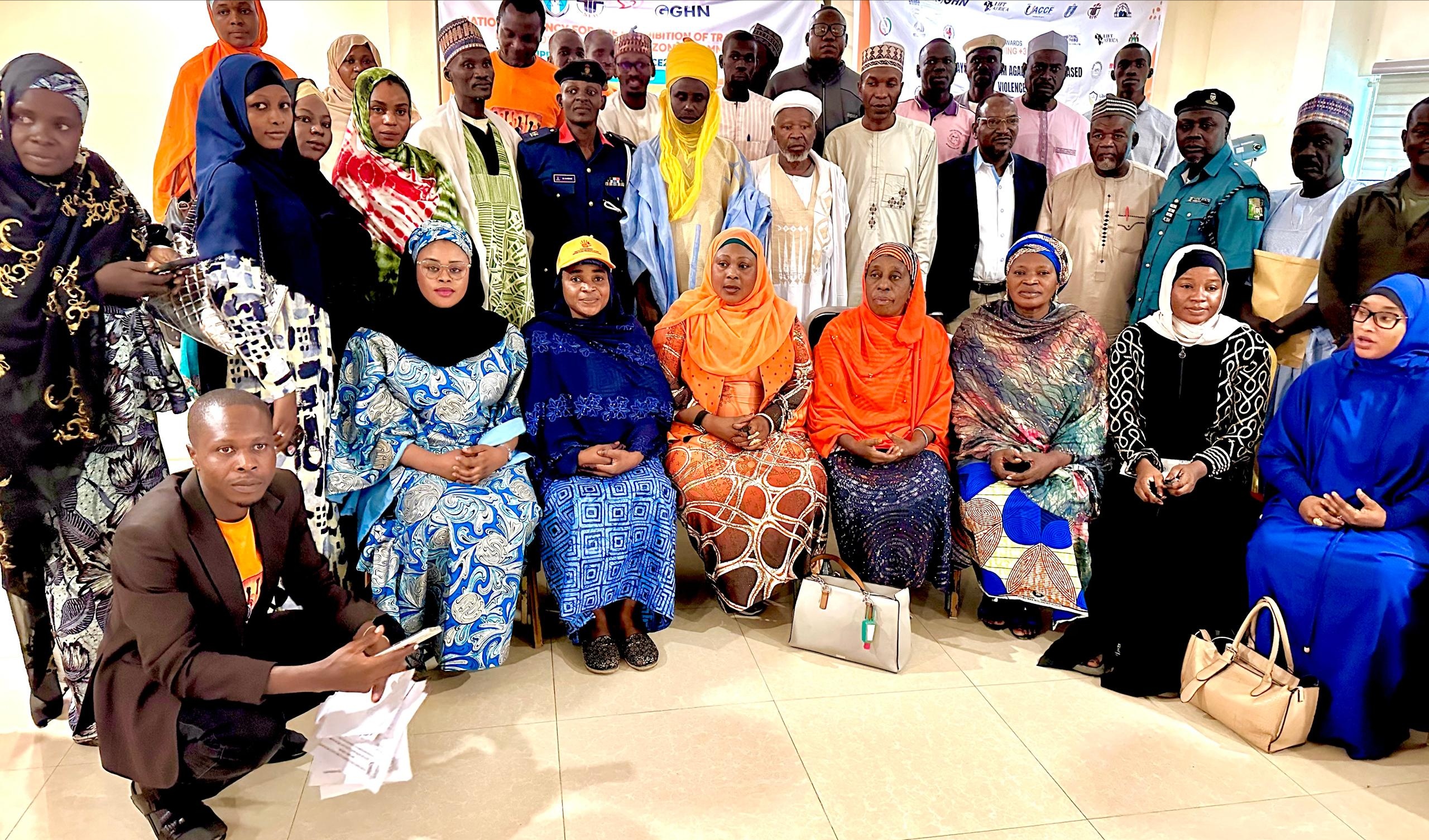By Jabiru Hassan, Kano.
Lift Africa Foundation, in collaboration with the National Agency for the Prohibition of Trafficking in Persons (NAPTIP), Society for Family Health (SFH), and George Town Global Health Nigeria (GHN), co-hosted a stakeholders’ town hall meeting in Kano to address the critical issues of child abuse and gender-based violence (GBV).
This event was part of a series of activities during the 16 Days of Activism, which included public sensitization campaigns, stakeholder engagements, radio and TV programs, an all-female novelty football match, online advocacy, and outreach with key stakeholders such as the Commissioners for Justice, Women Affairs, Health, and Communications in Kano State.
The meeting began with an opening address by Alh. Babale Abdullahi, Zonal Commander of NAPTIP, who highlighted the agency’s efforts in combating trafficking, child abuse, and GBV. He discussed NAPTIP’s progress in prosecuting offenders, providing victim support services, and collaborating with law enforcement agencies. Abdullahi emphasized the importance of community engagement, early intervention, and the vital role that proactive reporting plays in addressing these issues.
He also underscored the importance of legal protections, particularly the Violence Against Persons (Prohibition) Act (VAPP), and the urgent need for Kano State to domesticate this law to provide enhanced legal safeguards for victims of violence. Abdullahi explained that the VAPP law would serve as a key tool in holding perpetrators accountable and offering victims necessary legal and social support.
Following Abdullahi’s remarks, Barrister Aisha Hamman, Founder and Executive Director of Lift Africa Foundation, expanded on the discussions and focused on the crucial role of legal frameworks in addressing child abuse and GBV. Hamman emphasized the necessity of domestication of the VAPP law in Kano, the only state in Nigeria yet to adopt it. She pointed out that the law provides essential protections for victims, including mechanisms for preventing violence, supporting survivors, and prosecuting offenders.
Hamman called for urgent action from the state government to adopt the VAPP law, which she views as a vital step in strengthening the legal framework around gender-based violence. She also discussed the need for a shift from a reactive to a proactive approach in addressing child abuse and GBV, stressing the importance of instilling protective values in boys from an early age. She advocated for teaching respect for women and girls to foster a more equitable society.
In addition, Hamman highlighted the importance of timely reporting, which not only secures justice but can also prevent further harm such as HIV/AIDS, unwanted pregnancies, and other health risks associated with sexual abuse. She emphasized that public education and awareness are crucial to preventing violence and ensuring that victims are not stigmatized when they come forward.
Rukayya Yahaya Mohd, Gender and Social Change Advisor for Society for Family Health (SFH), shared that SFH had empowered 15 victims of GBV by providing support packages to help them rebuild their lives. These packages, which include education, vocational training, and self-employment opportunities, are designed to help survivors regain independence and reintegrate into society.
The meeting also featured insights from Rabe Ibrahim Jibiya, NAPTIP’s Head of Investigation, who outlined best practices for handling cases of child abuse, including the importance of promptly reporting incidents to security agencies and gathering critical evidence.
Dr. Abdulwahab from Murtala Mohammed Specialist Hospital spoke on the need for immediate medical intervention to preserve evidence and protect the victims’ well-being.
In conclusion, all stakeholders reaffirmed the need for continued public education, timely reporting, and community engagement in combating child abuse and GBV. Lift Africa Foundation remains committed to working alongside NAPTIP, SFH, and other partners to strengthen legal frameworks, ensure timely interventions, and create a protective environment for vulnerable individuals.

Leave a Reply